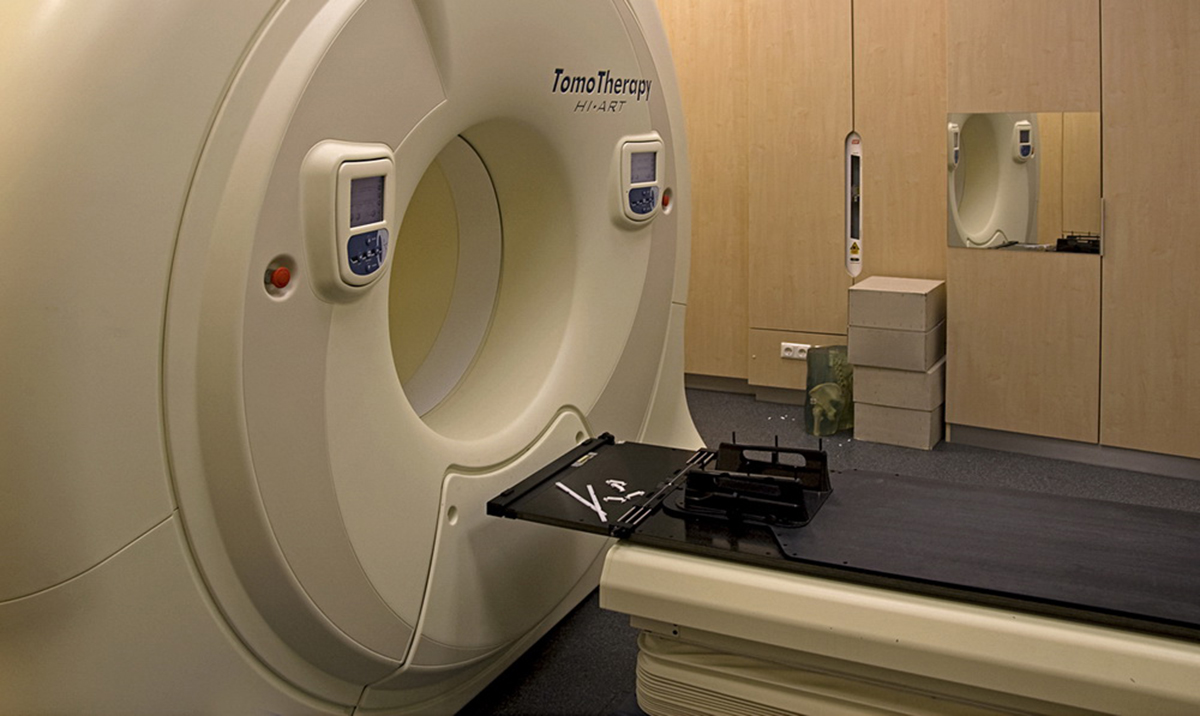Table of Contents
Despite advantages and clear benefits of radiation therapy, there are also negative sides. This therapy is associated with multiple unpleasant side effects. Radiation therapy may affect all fast-dividing cells in the body, which includes not only cancerous cells but also normal cells such as cells of blood and gut epithelium. In addition, after certain period of time cancer cells seem to become more resistant to radiation treatment. This means that much higher dosages of radiation would need to be used at the later stages of disease treatment to achieve the same effect. This, obviously, leads to significant impact on healthy tissues and organs.

The reasons for gradual development of radiation resistance are not very well studied. Recent findings, however, point to the potential role of a protein called ZEB1 (zinc finger e-bow binding homeobox 1).
It is thought that this protein may help these cells to repair the DNA that radiation damages by increasing the DNA damage response pathway, which is a first-line of defense against radiation. Radiation causes the formation of breaks in DNA. This is a serious damage which, if not repaired, results in the death of cell. Cancerous cells, being fast dividing, are much more sensitive to the damaging effects of radiation.
In some cases, the body works to create cells that resist radiation. These tumor cells "turn on" the DNA damage response pathway, but scientists do not know how exactly this happens. However, the current research into ZEB1 protein may help to find the answer to this question because this protein may work to essentially cause a process that generates cancer stem cells. By activating the system that repairs damaged DNA, these stem cells promote resistance to radiation treatments (radioresistance).
Targeting ZEB1 protein may help in preventing the development of radiation resistance
Recent research demonstrated that ZEB1 protein is able to trigger the so-called epithelial-mesenchymal transition (EMT) process. This process allows some tumor cells to take on the properties of stem cells, including being resistant to radiation.
The EMT process is a normal response within the body. The process is known to be activated during the wound healing. In the case of breast cancer, ZEB1 protein may be using this process to promote tumor progression. ZEB1 protein may accomplish this by triggering a rather complex chain of biochemical reactions that involve several other regulatory and DNA repair proteins such as ATM, CHK1 and USP7.
Research is ongoing to address how the ZEB1 protein impacts breast cancer treatment and what can be done to improve treatment. Radiation therapy is critical in the management of this type of cancer, so it is important to find a way to combat radioresistant cells. Some goals may include the development of agents that inhibit CHK1 and ZEB1 involved in the development of radiation.
See Also: Alternative Treatments for Breast Cancer
Researchers also hope that targeting this protein may help in preventing the process of metastases formation and spread. Successful drugs targeting this protein may improve the efficiency of existing methods of cancer therapy thus increasing the patients survival and success rate of treatment.
- Peijing Zhang, Yongkun Wei, et al. (2014) ATM-mediated stabilization of ZEB1 promotes DNA damage response and radioresistance through CHK1." Nature Cell Biology 16, 864-875
- Guaita S, Puig I, et al. (2002) Snail induction of epithelial to mesenchymal transition in tumor cells is accompanied by MUC1 repression and ZEB1 expression. J. Biol. Chem. 277 (42): 39209–16
- Liu W, Huang YJ, Liu C, Yang YY, Liu H, Cui JG, Cheng Y, Gao F, Cai JM, Li BL (2014) Inhibition of TBK1 attenuates radiation-induced epithelial-mesenchymal transition of A549 human lung cancer cells via activation of GSK-3β and repression of ZEB1. Lab. Invest. 94 (4): 362–70
- Costantino ME, Stearman RP, Smith GE, Darling DS (2002) Cell-specific phosphorylation of Zfhep transcription factor. Biochem. Biophys. Res. Commun. 296 (2): 368–73
- Photo courtesy of gosheshe by Flickr : https://www.flickr.com/photos/gosheshe/2982587536
- Photo courtesy of digital cat by Flickr : www.flickr.com/photos/14646075@N03/3801556968


Your thoughts on this